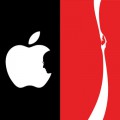In a nutshell: Name changes can be confusing and costly, but there’s a true advantage to aligning your brand to your company’s value proposition.
Weight Watchers slimmed down its name to WW. Dunkin’ Donuts de-emphasized the desserts and shortened its name to Dunkin’. Kraft adopted some international panache (and a hard-to-type accent mark) when it changed its name to Mondalēz.
Is it time for you to follow suit and rename your business? The answer isn’t always clear. Organizations that have grown beyond their original purpose might want a new name to reflect their new purpose and products. But new names can be expensive to implement, and there’s a possibility that consumers won’t like the change. As with all major decisions, it’s important to weigh the benefits against the disadvantages.
Here are three questions to ask if you’re considering a name change. Always consult with an expert who understands branding strategy and your industry before making a decision.
Does Your Current Name Tell People What You’re Doing?
In 2007, Apple Computer shortened its name to Apple. This tweak made a lot of sense: the company, which got its start with computers like the Apple II and the Macintosh, had branched out beyond computers. That year, the iPod was a hit product and the iPhone was announced. Company leaders knew that another non-computer product, the iPad, would be introduced in a few years. The company no longer made only computers.
Business leaders should ask themselves if their current company name truly reflects what they do for customers. Like Apple, maybe you started out with one type of product and have now expanded into other areas. Or perhaps you’re trying to change your image: The parent company of Restoration Hardware changed its name to RH in 2017 to reflect the fact that it wanted to be known as a lifestyle brand and not just a retailer.
A name change might be desirable if your company grows through acquisition. After buying Versace, Michael Kors Holdings announced it would change its name to Capri Holdings. The new name shows that the company is committed to being an umbrella for several fashion brands, and not just Michael Kors products.
What Are the Costs?
Changing your company’s name will come with a price tag — and the costs might be higher than you think.
Consider all of the expenses related to renaming:
- Lawyers to trademark the new name and prepare other documents
- Branding consultants to help select the name
- Graphic designers to develop a new logo
- Web designers to redo your website
- SEO experts to make sure web traffic isn’t disrupted by the name change
- Writers to revise marketing materials, such as case studies and white papers
- New signage
- New business cards, letterhead, envelopes and other printed materials
- New promotional materials, such as pens and tote bags to distribute at trade shows
Obviously, costs will vary for each company. However, history teaches us that name changes aren’t cheap. In 2008, FedEx told investors that it spent nearly $900 million to change the name of its retail chain from FedEx Kinko’s to FedEx Office. Dunkin’s rebranding at more than 12,000 stores worldwide is estimated to cost $100 million.
What Will Your Customers Think?
If you make a major change to your name, don’t expect your customers to be happy at first. Jake McKenzie, CEO of Intermark Group, tells Inc. that people tend to resent a company that changes its name:
“Our brain really dislikes changing anything stored in long-term memory. Simply adding something new in long-term memory is already a cognitive chore. Changing an established memory, like a brand name, is dramatically more difficult.”
If a name change is necessary, McKensie advises keeping best-known part of the company name — such as Dunkin’ Donuts and Dunkin’.
With time, your new name might become better known than your old one. Andersen Consulting became Accenture in 2001 — a wise move in hindsight, as the name of Arthur Andersen was later tainted by the Enron scandal. Nissan was once called Datsun. Nike was founded as Blue Ribbon Sports. And Yahoo! used to be called Jerry & David’s Guide to the World Wide Web.






